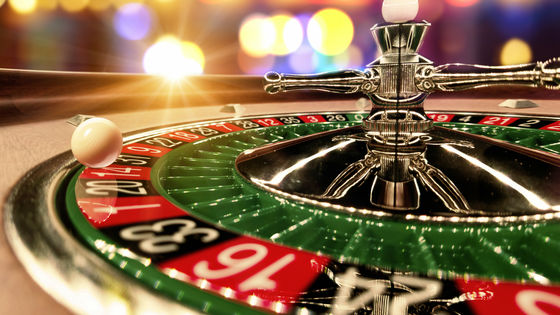Dostoevsky, author of Crime and Punishment, was addicted to gambling - how did he overcome his addiction?

How Dostoevsky overcame his gambling addiction
https://theconversation.com/how-dostoevsky-overcame-his-gambling-addiction-220655

Dostoevsky was active from 1841 to 1880 and is considered one of the greatest and most influential novelists of the Golden Age of Russian literature. His most famous work, Crime and Punishment, published in 1866, is a world-famous masterpiece and one of Dostoevsky's most famous works. On the other hand, The Gambler , published in the same year, is less well known than Crime and Punishment, but it had a strong influence on the writing of Crime and Punishment and is deeply connected to Dostoevsky's life.

'The Gambler' depicts people who become obsessed with roulette gambling and ruin themselves as a result. It is said that this story was based on Dostoevsky's experience of spending all his time playing roulette whenever he went on a trip, as he was angry at the infidelity of
When writing 'The Gambler,' Dostoevsky had a strange contract with his publisher, Stellovsky, which was reminiscent of gambling. Dostoevsky, who had a large debt due to gambling at the time, received 3,000 rubles (about 3 million yen at the time) from Stellovsky to prevent his creditors from hindering his writing. The contract also stated that if he was unable to deliver a work of more than 160 pages by November 1, 1866, two months later, 'Stellovsky would receive 100% of the rights and royalties from Dostoevsky's previous and future works for the next nine years.' Due to family misfortunes and a worsening relationship with Suslova, Dostoevsky's writing was delayed, so he dictated it to a shorthand writer and quickly finished writing 'The Gambler' in parallel with the serialization of 'Crime and Punishment,' and delivered the manuscript on October 31, just before the deadline.
According to Dobson, Dostoevsky became fascinated with roulette during a trip to Europe in 1863, and soon suffered losses and played roulette repeatedly to win them back. In 'The Gambler,' there is a passage that reads, 'One turn of the wheel and everything changes. I have zero in my hand now. But tomorrow I may rise from the dead and begin to live again!' The protagonist of 'The Gambler,' Alexei Ivanovich, goes from being a tutor to a wealthy family to being obsessed with roulette, and his personality changes as he falls into ruin. Dobson explained that Dostoevsky wrote this work based on his own experience as a gambling addict. Citing Freud's interpretation of Dostoevsky, Dobson describes the Gambler's characteristic as 'unlimited egoism.'

In 1980, the American Psychiatric Association classified gambling addiction as an 'impulse control disorder,' placing it in the same category as kleptomania and pyromania. Since then, research and development of treatments has progressed, and in 2013 it was reclassified in the same category as substance-related and addictive disorders, and research into drug treatments such as dopamine to control gambling urges is also progressing. However, even though treatment for gambling addiction was not established in Dostoevsky's time, Dostoevsky completely quit gambling. Dobson says, 'Dostoevsky provides a rare example of how a moment or chance event can change everything.'
Eight days after finishing The Gambler, Dostoevsky proposed marriage to the shorthand writer Anna Grigorievna Snitkin, and the two soon went abroad for years. During this time, Dostoevsky was still addicted to gambling, and not only did he lose all his money, but he also often pawned his belongings to gamble. Dostoevsky's gambling addiction continued for several years, but one day he suddenly stopped. The reason for this was written in a letter he sent to Snitkin in 1871, in which he wrote, 'After losing all my money and running away from a gambling hall, I arrived at what I thought was a church, but it turned out to be a Jewish

According to Dobson, from that day onwards, Dostoevsky lost all interest in gambling. Dobson points out that the reason for this may be that Dostoevsky, who was seeking the familiarity and security of the Russian Orthodox Church, mistakenly arrived at a Jewish synagogue, which caused him to fall into a strange and anxious state of mind, disrupting his previous experiences and way of thinking.
Dobson also suggests another possibility for Dostoevsky's gambling addiction. Dostoevsky was known to have suffered from epilepsy and a bronchial disease from around 1868, which had a strong influence on his writing. Dobson says that the reason Dostoevsky was able to suddenly escape from his gambling addiction may be because his body could not withstand the excitement of gambling and the energy required to continue gambling.
Recovered gambling addicts often emphasize the role of chance and sudden revelations in their rehabilitation, and Dostoevsky's example, while somewhat counterintuitive in today's world of expertise and research, is an interesting one.
◆ Forum is currently open
A forum related to this article has been set up on the official GIGAZINE Discord server . Anyone can post freely, so please feel free to comment! If you do not have a Discord account, please refer to the account creation procedure article to create an account!
• Discord | 'Have you ever gambled? Are you trying not to get addicted?' | GIGAZINE
https://discord.com/channels/1037961069903216680/1230808348711059466
Related Posts:
in Note, Posted by log1e_dh







